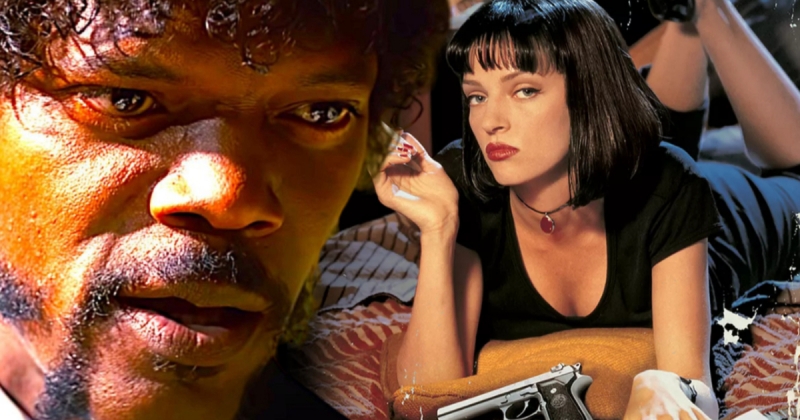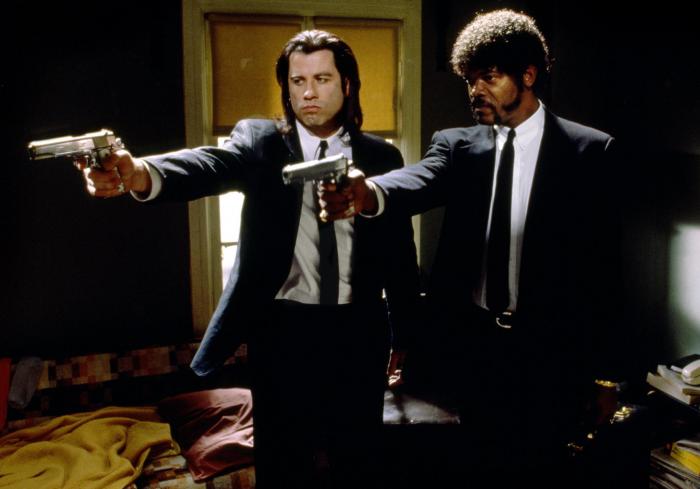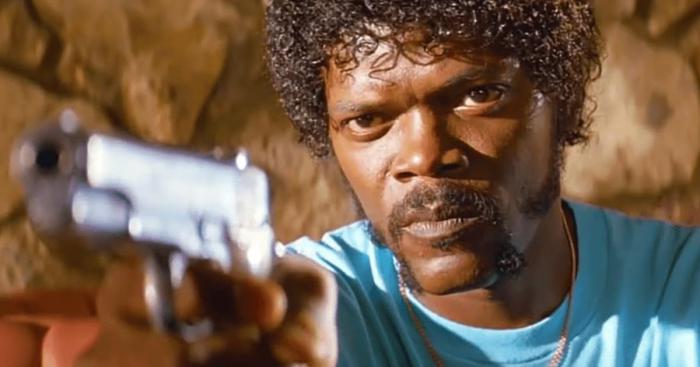Pulp Fiction is probably the most iconic film of Quentin Tarantino's entire career. A cult film, an iconic work, and the symbol of an entire generation. But did you know that the ending of Pulp Fiction could have been different?

Pulp Fiction: Cult Film
In 1994, two years after Reservoir Dogs, his first film, Quentin Tarantino released Pulp Fiction, his second feature film. In just two years, Quentin Tarantino has become the new little genius of American cinema that we must follow closely. Already with Reservoir DogsThis young prodigy has made an impression and attracted the attention of the world of cinema lovers. With Pulp Fiction, he raises the bar even higher. QT has a bigger budget, and has assembled a huge cast to lead his second film. Samuel L Jackson, Tim Roth, John Travolta, Bruce Willis, Uma Thurman, Rosanna Arquette, Harvey Keitel, Ving Rhames, Christopher Walken, they are all gathered to participate in this legendary roller coaster.

Pulp Fiction then became an instant cult film. The feature film even won the Palme d'Or at Cannes. An award that had also caused scandal among an intellectual class shocked by the Academy's choice. In addition to its Palme d'Or, Pulp Fiction was nominated 7 times for the Oscars and left with the statuette for Best Original Screenplay. On the box office side, for a budget of 8 million dollars, Pulp Fiction brought in more than $213 million in revenue. A popular triumph that definitively launched Quentin Tarantino's career.
200% Deposit Bonus up to €3,000 180% First Deposit Bonus up to $20,000An alternative ending
But did you know that the ending of Pulp Fiction could have been totally different? Indeed, Quentin Tarantinohad imagined several conclusions to his masterpiece. In the final cut, the last sequence takes place in a diner. Jules (Samuel L Jackson) and Vincent (John Travolta) are having breakfast there. The tension rises when Pumpkin (Tim Roth) and Honey Bunny (Amanda Plummer)) decide to rob the restaurant. They go from table to table to take the customers' money. Pumpkin finally arrives at Jules and Vincent's table. Pumpkin asks Jules to give him his briefcase. Jules remains surprisingly calm. And when he has the opportunity to shoot him, Jules prefers to rely on the Bible. He recites the Bible verse Ezekiel 25:17, which he usually says before killing someone.

However, this time, he uses the verse in a different way. Jules explains that he had a divine revelation earlier in the day, when he survived a shootout in the apartment at the beginning of the film, where, miraculously, none of the bullets hit Vincent or him. In a stroke of luck for Pumpkin, Jules wants to change his life, and is tired of being a killer. Instead of killing Pumpkin and Honey Bunny, as he probably would have done before, Jules gives them a chance to walk away unharmed. He gives them money to leave the diner, without doing any violence. The scene ends with Pumpkin and Honey Bunny leaving the diner, and Jules and Vincent quietly resuming their breakfast.
A cult ending, which allows Pulp Fiction to be wrapped upwhose temporality is never linear. But initially, Quentin Tarantino wanted to kill Pumpkin and Honey Bunny. During a video with GQ, Samuel L Jackson returned to the alternative ending of Pulp Fiction. He reveals that originally, Quentin Tarantino wanted to propose a conclusion full of violence as he has the secret:
In Pulp Fiction, in the original script, in the diner, when Tim first comes in, he asks about the briefcase. He takes it, he opens it. And when he opens it, I take Honey Bunney out of the bar. I shoot her and I kill her. There's a cut, and I open my eyes. That's what I would have done if I was still violent, if I hadn't had my divine vision.
Actually, Quentin Tarantino hesitated to add an additional sequence that would have featured Jules' imagination. This scene would have highlighted the old Jules, the killer. Jules would then have imagined what he could have done to him before changing his mind, and finally resolving the problem through non-violence. In our opinion, Quentin Tarantino did well not to include this additional scene. It adds nothing more to the overall plot, nor to the trajectory of Jules' character, and would probably have weighed down the pace of the conclusion. And then, this kind of flash, it's often a lazy process. No, the ending of Pulp Fiction is very successful as it is!

